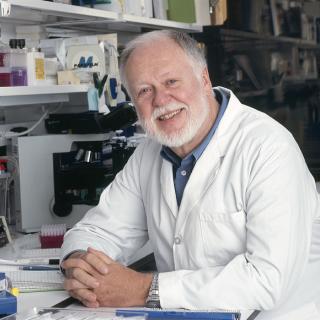
Izumi Horikawa, M.D., Ph.D.
- Center for Cancer Research
- National Cancer Institute
- Bldg 37, Rm 3054
- Bethesda, MD 20892
- 240-760-7775
- horikawi@mail.nih.gov
RESEARCH SUMMARY
Izumi Horikawa has 35 years of experience in the field of cancer and aging research, being a strong driving force for numerous LHC projects that have been completed and are currently ongoing. He plays a central role in multiple ongoing studies on p53, its isoforms, physiological and pathological aging, and carcinogenesis, which all represent the NCI/NIH missions for human health span in terms of addressing aging-associated diseases such as Alzheimer’s disease and hard-to-treat cancer such as glioblastoma and lung cancer.
Areas of Expertise

Izumi Horikawa, M.D., Ph.D.
Research
His research goal is therapeutic applications of p53 isoforms, D133p53a and p53b, in prevention and treatment of aging-associated diseases and cancer. The areas of his interest include neurodegenerative diseases such as Alzheimer’s disease and radiotherapy-induced cognitive impairment in cancer survivors, premature aging syndromes such as Hutchinson-Gilford progeria syndrome, and chimeric antigen receptor (CAR)-T cell therapy.
Publications
- Bibliography Link
- ORCID : 0000-0002-2893-5014
Spontaneous immortalization of cultured skin fibroblasts obtained from a high-dose atomic bomb survivor
Cloning and characterization of the promoter region of human telomerase reverse transcriptase gene
Evolutionarily conserved and nonconserved cellular localizations and functions of human SIRT proteins
Δ133p53 represses p53-inducible senescence genes and enhances the generation of human induced pluripotent stem cells
Enhancing chimeric antigen receptor T cell therapy by modulating the p53 signaling network with Δ133p53α
Biography

Izumi Horikawa, M.D., Ph.D.
1995 Postdoctoral fellow, NIEHS, Research Triangle Park, NC 1999 Research fellow, NIEHS, Research Triangle Park, NC 2002 Staff Scientist, CCR, NCI, Bethesda, MD
